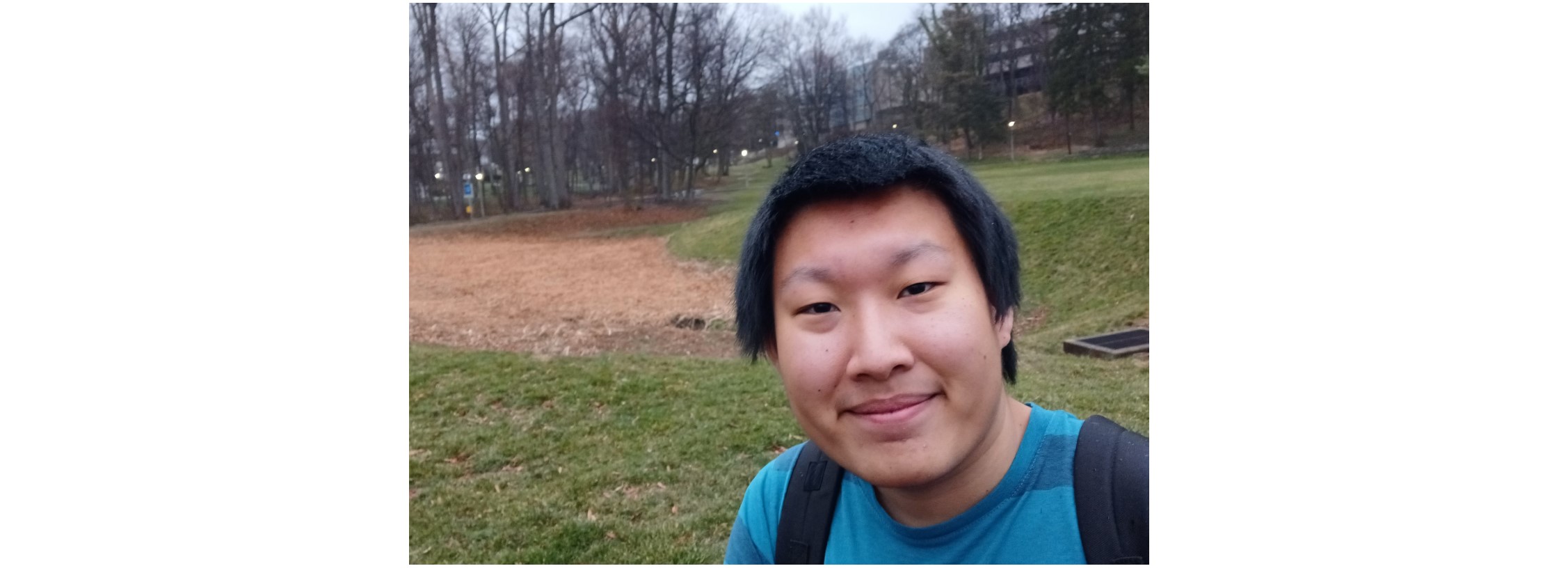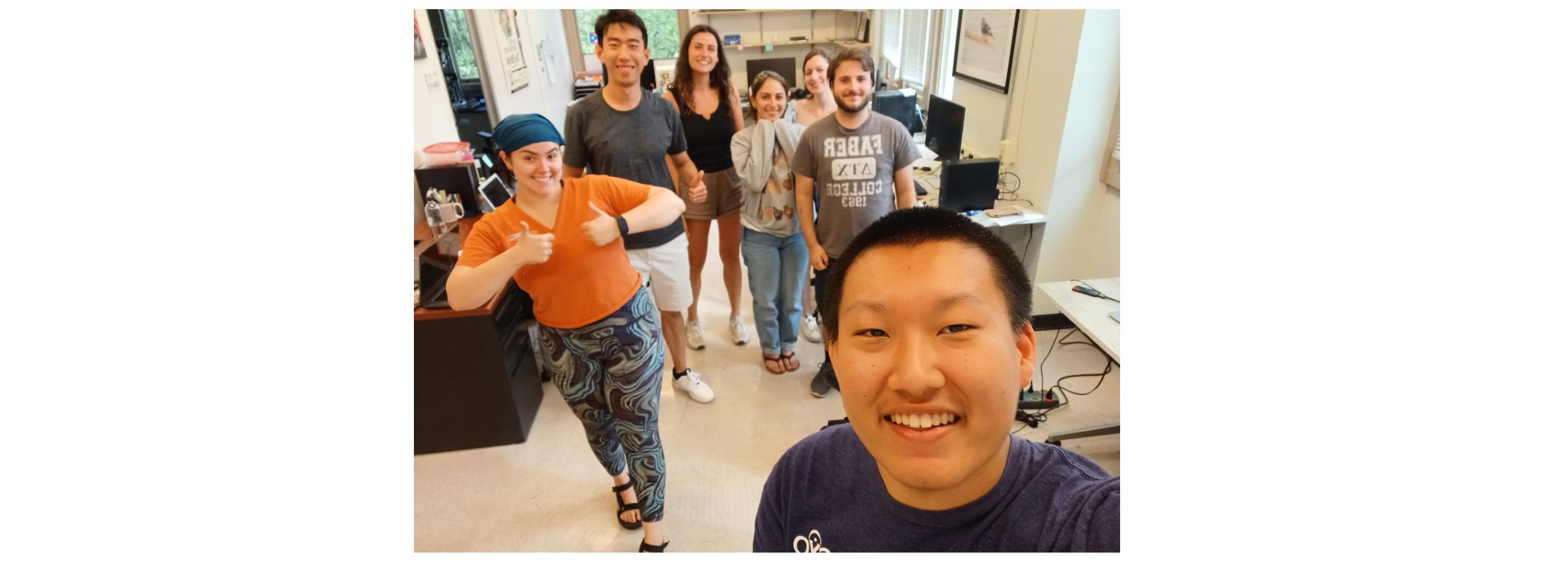
Eric Tao ('25) is a Cognitive Science and Mathematics double major who studies complex social behaviors using a songbird model under the mentorship of Dr. Marc Schmidt (Department of Biology). This research was supported by the College Alumni Society Undergraduate Research Grant.
When I first came to UPenn, I had a vague idea that I wanted to do something involving mathematics, but I had no idea beyond that. My second semester, I decided to apply to PURM on a complete whim and chose a project that sounded exciting but was entirely out of left field for me. I applied to join the Schmidt Lab, which uses birds to study the neuroscience of social behavior, without having taken any prior courses in biology or neuroscience. I was a math major who hadn't taken any courses in biology, nor knew that such a field as evolutionary ecology existed, or that the questions in it could be so fascinating. It's funny how one impulsive decision can shape what you want to do for the rest of your life. After my PURM summer, I loved the experience so much that I decided to continue in the lab and take classes in computational neuroscience. I started to take more direction over my research projects, become more immersed in the field, apply for grants and fellowships, and travel to conferences.
I've been in the Schmidt lab for over a year now, and sometimes I just sit back and marvel at all of the things we can learn from such a simple-seeming creature, the brown-headed cowbird. Small, cute, and socially gregarious, it's a model organism for studying how complex social behaviors have evolved over the eons and how the brain somehow learns from its environment and produces them. Through engaging in this research, I've learned how complicated the brain is, what techniques we have for studying it, and the foundation of a whole new field which I hadn't thought about pursuing before.
To be a little more specific, I've been examining how male cowbirds change their song in different contexts. The "honest signaling" framework predicts that the male cowbird signals his fitness to the female via an incredibly precise and physically draining song display. But does the cowbird always do the same song, or does he switch it up depending on who he's talking to, just like how we switch registers when we talk to someone older or someone younger? This is the question that I researched over the summer and that our lab is continuing to research. I now know that the cowbird song is incredibly stereotyped, and male-directed song and female-directed song are almost identical, but there are still many questions open!

One of my favorite parts was definitely the lab community. When I first met the students in the lab, I was amazed at how diverse their interests were, from physics to neuroscience to electrical engineering, and I was relieved by how accepting and supportive everyone was. I'm really grateful for how friendly the other members of the lab were, whether it comes to the trip we took to the zoo while our PI was at a conference or the celebration we had for our vet student finishing her first year of vet school. I'm especially thankful for how respectful and encouraging our PI was, and it really made the lab feel like a safe space to talk about both research and our daily lives.
I've also learned a lot of skills that I can take with me to future projects. One essential question that I've always had is how a scientist frames a question and investigates it. This summer, I've learned how open-ended science can be and how many twists it can take before you find the right question to ask, the right experiment to test it, and the right procedure to make sure nothing goes wrong (the cowbird mating season only lasts so long!). I've also gotten a lot of experience in writing scientific code. Participating in journal clubs was another enlightening experience, letting me see how abstract ideas in mathematics such as algebraic topology could be applied to analyze real-world neural data. But just as much, I've learned how simple mathematics can be used to probe into deep questions. Every day, I learn more and more, and I am eager to continue learning and researching after graduation by pursuing a PhD. And it wouldn't have been possible without the generous support of CURF! - Eric Tao
Interested in reading more first-hand accounts about undergraduate research? Check out the other experiences featured on our Student News Page and Social Media!
Related Articles
Penn alumnus named 2025 Samvid Scholar
11/20/2024
The Importance of Community in Research
11/18/2024
Seyoon Chun ('26), a History major, conducted public health research under the mentorship of Dr. Andy Tan (Department of Communication) on how tobacco companies target members of the LGBT community. This research was supported by the Penn…
Penn fourth-year Om Gandhi is a 2025 Rhodes Scholar
11/17/2024
Penn fourth-year Om Gandhi, from Barrington, Illinois, has been awarded a 2025 Rhodes Scholarship, which funds tuition and a living stipend for graduate study at the University of Oxford in England. He is among 32 American Rhodes Scholars, and an…